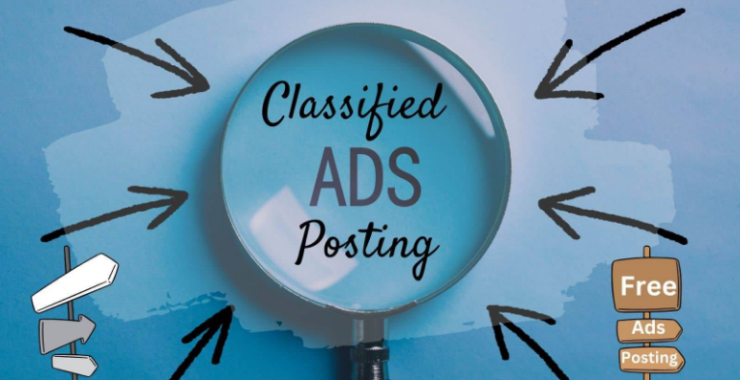Can I Receive Disability Benefits for an Anxiety Disorder?
Living with an anxiety disorder can be extremely difficult and, in some cases, debilitating. For many individuals trying to manage their mental health while working and caring for themselves, seeking disability benefits may seem attractive. Disability service, Perth, WA, utilize disability benefits to help cover the costs of medical care related to managing anxiety disorders can provide much-needed relief. This post will explain the process of applying for disability benefits due to an anxiety disorder, how you can increase your chances of being approved, and what other resources are available outside of traditional disability programs.
What is an anxiety disorder and what are the symptoms?
An anxiety disorder is a mental health condition which can cause severe and persistent feelings of fear and worry. Symptoms can include:
- Feeling restless or on-edge
- Having difficulty concentrating
- Difficulty sleeping, including waking up in the night with worry
- Easily fatigued
- Muscle tension
- Shortness of breath
- Racing heart rate or palpitations
- Sweating or trembling
- Stomach ache or nausea
- Dizziness or lightheadedness
These symptoms may lead to difficulties in daily functioning, such as going to work, school and social events, as well as maintaining relationships with family and friends. Anxiety disorders can range from mild to severe, and the cause can vary depending on the individual. Treatment options may include therapy, medication and lifestyle changes. It is important to seek help from a qualified mental health professional if you believe that you or someone you know is suffering from an anxiety disorder.
How do anxiety disorders impact daily life activities and relationships?
Anxiety disorders can have a major impact on daily life activities and relationships. People with anxiety disorders may find it difficult to concentrate, cope with stress, and make decisions. They may also experience physical symptoms such as trembling or increased heart rate.
Additionally, people with anxiety disorders may avoid social situations due to fear of judgment or embarrassment. This can lead to feelings of loneliness and isolation. Furthermore, the constant worry associated with anxiety can cause relationship problems with family members, friends, co-workers, etc., as those around them may be unable to understand the intensity of their concerns.
What is the process of applying for disability benefits for an anxiety disorder, and what are the chances of being approved?
Applying for disability benefits due to an anxiety disorder can seem daunting, but understanding the steps and probabilities of being approved can help make it easier.
1) The first step is to gather the medical evidence that supports your claim of disability. This may include records from primary care visits, specialist visits, hospitalizations due to anxiety or related conditions, mental health treatment such as therapy or medication management, laboratory studies, and other related documents.
2) Once you have all the necessary paperwork together, the next step is to complete an application with either Social Security Disability Insurance (SSDI) or Supplemental Security Income (SSI). It’s important to answer all questions accurately and completely; if not, the application may be denied.
3) After you apply, it will first go through a technical review process to ensure all of your medical evidence is in order and that you meet certain basic criteria for disability benefits. If approved, your case will then proceed to a medical evaluation. During this phase, experts will review your medical records and other information related to your disability claim.
4) If approved during the medical evaluation, Social Security will issue you a decision outlining how much financial assistance they can provide you each month based on your condition and work history.
5) The chances of being approved for disability benefits due to an anxiety disorder can vary from individual to individual. However, research has shown that individuals who provide sufficient medical evidence and meet the criteria for disability benefits are more likely to be approved.
Overall, applying for disability benefits due to an anxiety disorder can be a lengthy process. Still, it is possible to receive financial assistance if you have the right information and follow all the necessary steps. With an understanding of the application process and potential outcomes, you can set yourself up for success in your quest for disability benefits.
What resources or support groups are available for people with an anxiety disorder?
Many resources and support groups are available to those living with an anxiety disorder. It can be helpful to reach out to others who understand what you’re going through and receive advice from experts in the field.
Online forums are a great way to connect with people with similar experiences. You can get advice and share your struggles in a safe and supportive environment. Additionally, many social media sites offer online communities for discussing mental health topics, such as Reddit or Facebook Mental Health Support Groups.
If you would prefer to speak with someone in person, various therapy options are available, such as cognitive behavioural therapy (CBT). CBT works by helping individuals identify negative thought patterns that can lead to anxiety and teaching them healthier, productive strategies for coping with those feelings.
Disability Services Perth, WA, is home to a wide range of disability services that assist people with disabilities. These services range from physical and occupational therapy to respite care, case management and job skills training. They also offer social programs such as leisure activities, support groups and advocacy services. These services aim to help individuals with disabilities lead meaningful lives and contribute to their communities.









